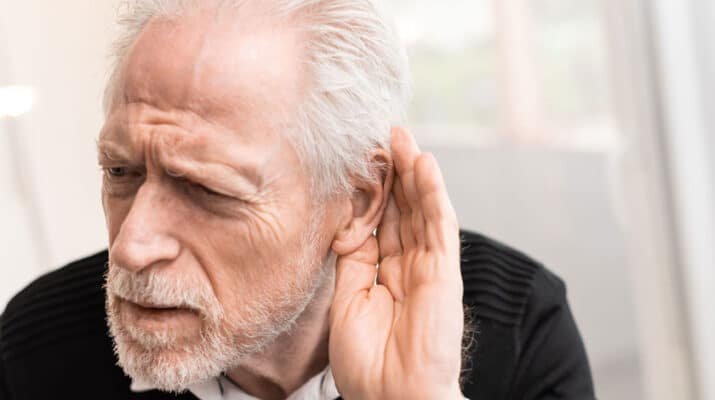Expert says some people with hearing loss won’t admit the problem and wait years to look for treatment
By Deborah Jeanne Sergeant
Specialists in the ears and hearing care for not only the actual function of hearing but may also deal with other issues and concerns such balance. Numerous conditions can affect hearing.
Audiologists may also deal with other issues and concerns such balance and tinnitus, commonly called ringing in the ears.
“We are trained to evaluate these problems,” said Doug Brown, audiologist and owner of dB Audiology in Syracuse. “Generally, balance issues are referred because most people see their primary care physician to see if there’s a treatable disorder and primary care refers to us to do a more in-depth diagnostic.”
For diminished hearing, it may not mean a hearing aid is the answer. Sometimes, the cause is temporary or treatable. In some cases, a hearing aid may present the best way to address the problem.
“There’s an entire set of skills necessary to test the hearing,” Brown said. “We then can develop a plan with the patient to deal with the problem. If it’s medically or surgically treatable, we refer you to your physician.
“We can also discuss various options for improving communication which can include hearing aids. You should consult an audiologist if you have a sudden onset of hearing loss in one or both of your ears. That’s considered an audiological emergency because treatment has to occur within in a short time frame or permanent hearing loss can occur.”
Unfortunately, most gradual hearing losses are not diagnosed for seven to 10 years after they have become problematic. And there are those whose hearing gradually diminishes and don’t notice or don’t want to admit the problem for a long time.
Patients often put up with the inconvenience for a long time. What draws many people to seek treatment for hearing loss is the discomfort of those around them who do not want the television so loud or become weary of repeating themselves.
While in ideal listening situations they may hear fine, they have trouble at other times.
“They have trouble hearing sounds in noisier situations than others,” Brown said, “like not hearing a waitress when the others at the table know what the specials are.
Wearing masks because of COVID-19 has made it even more challenging for people who struggle to hear conversation because the mask both conceals visual cues and muffles sound.
While primary care physicians can provide basic screening, an audiologist possesses a wider array of testing capabilities for hearing issues.
Audiologists also help patients preserve their hearing with custom ear plugs, including designs especially suited for hunters and musicians who need to clearly hear for their pursuits but can also experience exposure to loud sounds.
“We can help you find which form of hearing protection is going to be best for the activities you’ll use them in,” Brown said.
David DeFrancis, director of outreach and education for hearing and vision services at Aurora of Central New York in Syracuse, said that signs of hearing loss could include noticing that “everyone mumbles” or the television is turned up very loud.
“Medicaid does pay for one hearing aid every five years,” DeFrancis said. “Medicare does not cover hearing aids.”
For those best treated with hearing aids, the performance and capabilities of current instruments over instruments of even a decade ago have dramatically improved.
Like eyeglasses, some aids come in fashion colors and designs, while others appear more discreet. Modern hearing aids use Bluetooth to stream phone calls and movies to the user and can come with features like fall detection for frail patients.
Some Kids Also Need the Help of an Audiologist
Specialists in the ears and hearing care for people of all ages, not only for older adults.
Robin Ngumbi, audiologist with Hear 2 Learn in East Syracuse, said the specialists at her organization treat children from newborn through 3 years of age.
“Even a mild hearing loss can cause speech and development delays,” Ngumbi said.
Most of her patients are referrals from pediatricians when an infant fails a newborn hearing test; however, some newborns do not receive these if they are born at home. Parents may notice their baby does not startle at loud sounds or look for the source of a sound.
“It may be developmental where they haven’t reached that stage where they look,” Ngumbi said. “Some babies are used to noisy homes and get good at ignoring it and it may be from hearing loss. Not responding to sounds is a main reason parents come to us.”
Some parents notice an issue when their baby does not reach milestones for babbling or saying first words. Ngumbi said that checking hearing is a good first step to figuring out what is going on.

